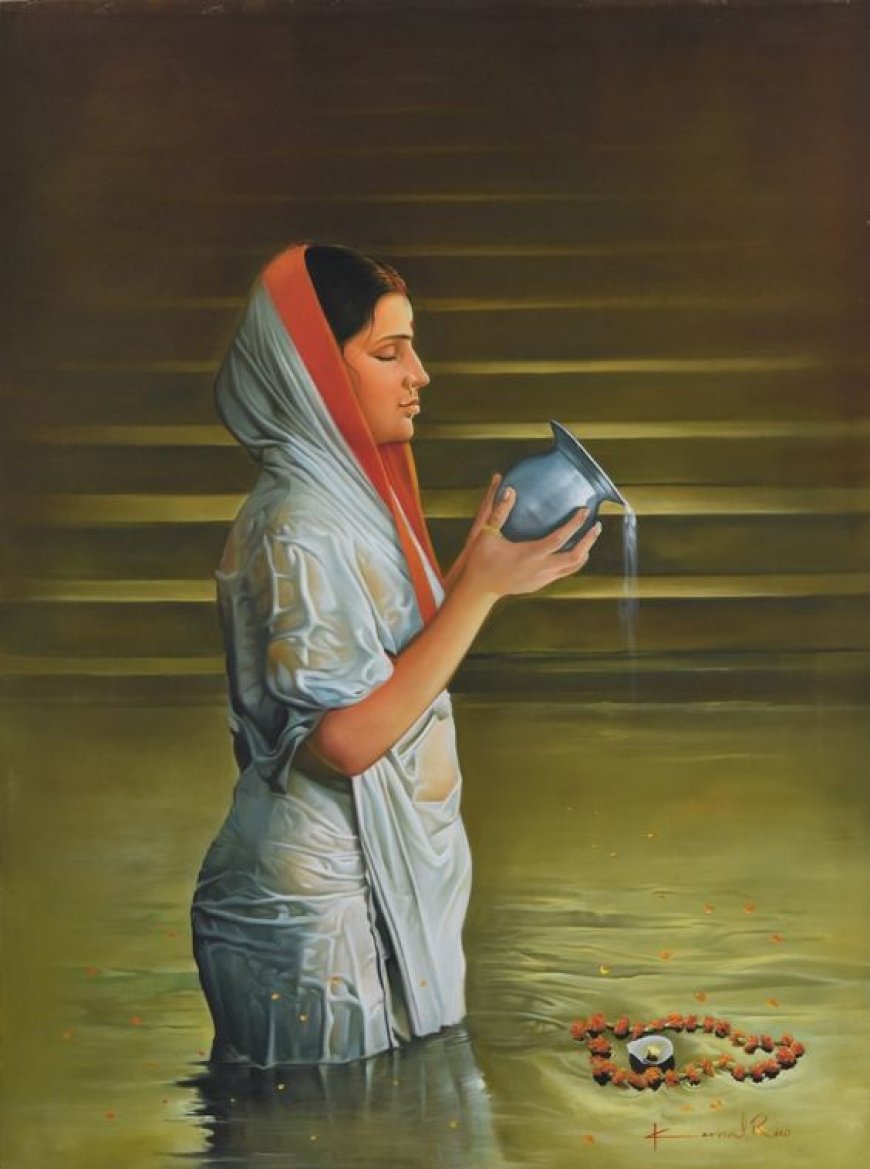Can a woman offer water to the Sun God?
Exploring Women's Role in Offering Water to the Sun God in Hinduism: Tradition, Interpretation, and Contemporary Perspectives
Many academics and followers of Hinduism, a faith that considers the Sun God to be one of its primary deities, have discussed this issue. Since several sources and traditions may have different opinions and interpretations, there is no one correct solution to this topic. But some viewpoints that might be held are:
- According to some traditions, such the Manusmriti and the Surya Siddhanta, women are inferior to males and should not engage in certain rites or worship certain gods, such as the Sun God. As to these writings, Sandhyavandanam, the daily ritual of offering water to the Sun God, is restricted to males belonging to the three superior castes, namely Brahmins, Kshatriyas, and Vaishyas. Due to their perceived ritual impurity during menstruation and their reliance on their husbands or fathers to fulfill their religious obligations, women are not allowed to participate in this rite.

- Other texts, like the Ramayana and the Bhagavad Gita, highlight that everybody who possesses trust and devotion to the Sun God, irrespective of caste, gender, or social standing, may worship him and get his benefits. These writings declare that the Sun God is the origin of all life and energy and that he does not show preference to any one believer. In order to show their appreciation and respect, as well as to ask for his protection and direction, women might bring water to the Sun God. In addition, women may engage in various acts of devotion including singing hymns, chanting his names, reciting his mantras, or meditating on his form.
- Some contemporary academics and activists contend that women ought to have the same freedoms and chances to worship their faith that men do, and that the limitations imposed by some antiquated writings are no longer applicable to today's world. They assert that women may empower themselves both spiritually and socially by offering water to the Sun God as a symbol of their independence and personal choice. Additionally, they draw attention to the many instances in Hindu history when women have been exalted as saints, sages, poets, or leaders and have worshiped the Sun God with virtuous devotion.

























































